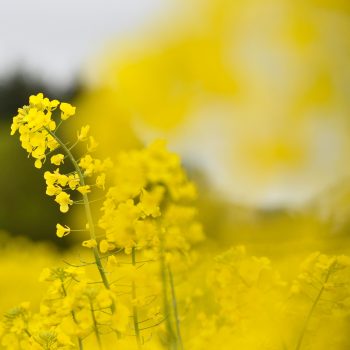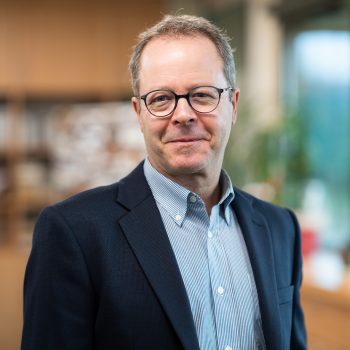Saipol is regaining its place in the sun. The changes implemented have been successful. The company, the European leader in the use of rapeseed and sunflower seeds, is now positioned as one of the key players in energy, agriculture and food transition, with protein autonomy as its target. But what drives the company is getting farmers involved in the virtuous circle of a decarbonised and profitable agriculture. In 2020, about a hundred direct producers and about fifteen cooperatives and traders have already come on board. The aim is to draw on agronomy for growth levers using 100% French seeds. Christophe Beaunoir, Managing Director of Saipol, provides an update on this strategy.

If in 2021 he looks back with satisfaction at the company’s progress, he remembers the difficult years: “We needed the time to mature from a strategy based on volume to a strategy relying on specialised products and to give meaning to our mission. Our only reason for being was to support a sector originally supplied from energy fallow land and tax-free! At the end of this period, which ended in 2015, the model had to be completely reinvented. We are now a full-fledged player in the bioeconomy and protein autonomy”. In order to make the link with this positioning and to remain coherent in the commercial offer, he is leading Saipol’s recovery based on the three challenges that are driving agriculture in the 21st century: providing quality food, preserving natural resources and fighting against global warming by storing carbon in the soil and reducing fossil fuel consumption, which is the prerogative of modern, highly mechanised agriculture.
This transformation also involves redefining the scope of the company: “We were locked into a historically constrained model of seed supply and a monolithic market, to the point of becoming the adjustment variable for the major fuel distributors, under pressure from import dumping”. Multi-channelling, both upstream and downstream, and the use of digital technology have been decisive: diversifying sourcing and markets, seeking value on new markets – Saipol exports more than 50% of its esters – and right up to the consumer, have opened up new horizons. “The best example of this is Oleo100, which was born of our desire to offer local authorities and transporters a new 100% renewable energy directly from the producer by providing them with a tank”.
Capturing value from seed to tank
And there is a lot of interest in putting Oleo100 in the tank! Or rather, to put some French agriculture on the roads of Europe, as far as Scandinavia! This is the essence of the strategy deployed since 2017 by Christophe Beaunoir and his teams.
The company creates value again. For the farmer first, and then throughout the transformation process, by developing a coherent chain around the French seed with an environmental and societal objective. “We are driven by the virtuous nature of our approach”, he says. With Oleo100, we produce a biofuel whose rapeseed comes from a decarbonised and more sustainable agriculture. This energy helps reduce greenhouse gas emissions from the transport sector while stimulating the agricultural transition. So much so that one of the historical partners, Renault Truck, now manufactures heavy goods vehicles with an engine adapted, from the design stage, to run on this new energy coming from the territory… all without any additional cost!
A full-fledged player in the bioeconomy
This strategy works if it remunerates at a fair level each player in the sector who creates value through its production, storage and distribution activities. “We are the first to pave the way towards an agro-ecology that remunerates the farmers in line with their efforts via our OleoZE solution launched in February 2020”, he adds. The first batches of rapeseed purchased under sustainable and traceable farming practices have been delivered by some 15 cooperatives and traders with their farmer members or customers, and over 100 farmers directly. They act on direct and indirect greenhouse gas emissions with 60% to more than 100% GHG savings by storing more carbon in the soil. They plant intermediate crops, leaving biomass in the soil: “Agronomy is at the forefront, it offers us tremendous growth levers because we are here to promote innovation. ” He gives the example of Saipol’s trials with camelina, a plant of the rapeseed family, which is more sparing of inputs and has a shorter cycle, and whose crushed seed produces oil that can be used as fuel. “Instead of cultivating mustard between two crops, which will have to be destroyed, we look for solutions that pay off,” he adds. The field of possibilities is immense with a source of supply of raw materials that is set to diversify. “We see ourselves as the central player in the development of sustainable agriculture by proposing solutions for the energy and food transitions. When they use Oleo100, our customers know they are reducing their GHG emissions. They also know that they are making a concrete contribution to a more sustainable and local agriculture. Finally, they are proud to promote plant protein autonomy by limiting our dependence on imported soya”.

“We are a key player in protein autonomy and the bioeconomy by collecting the value that we redistribute to the farmer”.


